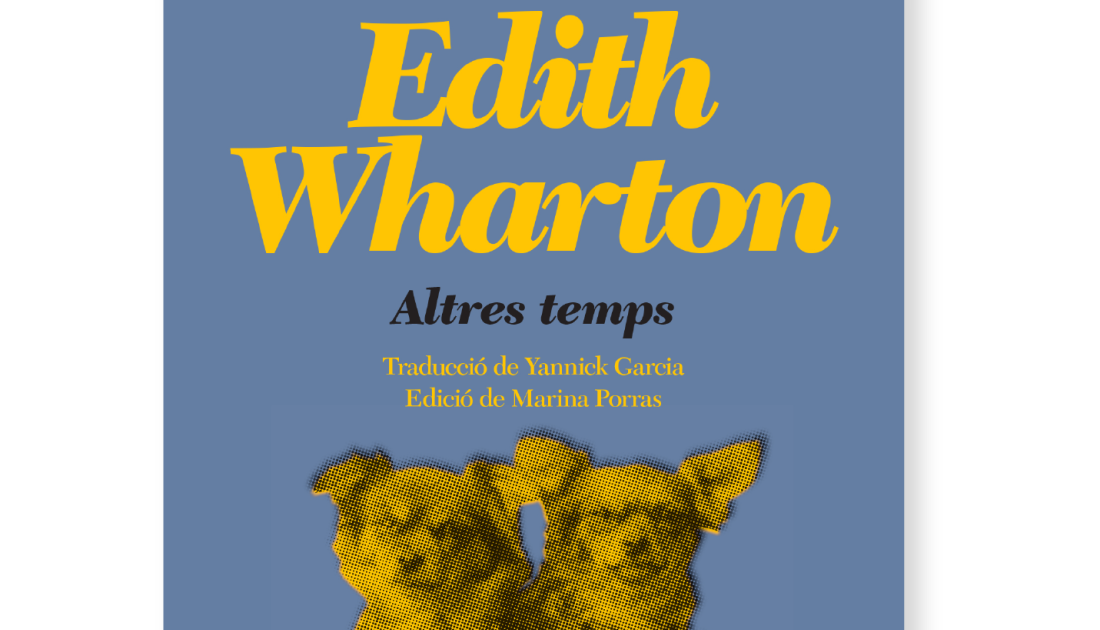
Original Language: English
Translation (to Catalan): Yannick Garcia
Year of publication (volume): 2025
Valoración: Advisable
Other times It is an anthology published by the Comanegra publishing house. Compile five stories of Edith Wharton translated into Catalan by Yannick Garcia, originally published between 1899 and 1934. All squander quality and are examples of the author’s stylistic fineness, as well as the psychological complexity of her characters.
Let’s summarize them: in “Frebra Romana” (1934), two friends who know each other from young people, being already old, throw each other the reproaches that had long been keeping; In “La Missió de la Jane” (1902), a marriage manages to overcome their differences after adopting a girl whose parenting becomes difficult; In “Autres Temps” (1911), a lady debates between supporting her daughter or corresponding to a suitor; In “ànimes late” (1899), a woman who has left her husband by a writer must manage the theoretical contradictions of her new situation; In “La Llavor de la Magrana” (1930), a lawyer’s second wife confronts him after realizing that he receives mysterious letters that supply a strange effect on him.
Of these stories I have particularly liked the way in which they portray the obliqueness of the human being. Wharton was obviously a great connoisseur of psychology and sociology, and this is evident in the characterizations, interactions and dialogues of his characters. Well -defined characters, with their edges and contradictions, constrained by the morals of the time, conventions, class attitudes or institutions (such as motherhood and marriage).
The protagonist of “Autres Temps” is crossed by a cluster of emotions, feelings and contradictory thinking with respect to his pretense, that Wharton synthesiza admirably in this passage: “ They had strolled and chatted together, had left books and newspapers, the cold and long evenings had passed on the edge of the fire under Dark, and his presence had consoled him splendorously, and hardened and glacial corners of his deduction had been melted, and he had understood that he would live his game in despair. Then, (…) the idea was known to him that he depended on her if she wanted her to stay. (…) How could he reveal his feelings and, at the same time, reject what he offered? ‘ (Pg. 132).
From the ovblicua relationship of the protagonists of “ànimes late”, Wharton says the following: “There were two autonomous entities, it is not as if they had merged for the miracle of having had to tolerate the same penalties, of having shared obligations, renunciations, but that they were tied a passionate drowning that had resist them, clinging, while sinking” (pg. 219).
Of the stories of Other times I would also highlight, in addition to the already mentioned way of portraying the obliqueness of human relations, the ingenuity of certain observations. I attach one that fascinates me particularly, which appears in “Missió de Jane”: “Jane’s ideas did not increase as he acquired them. That young mind was nothing more than a data receptacle: a kind of refrigeration chamber where you could take anything that would have been saved at any time, intact, but frozen ”(pg. 96).
Really, there is not much more to add about Other times. I will only inist that it compiles five stories out of the pen of a very solvent writer; Round stories, which emphasize the oblique psychology of their characters and abound in lucid reflections.
Source: https://unlibroaldia.blogspot.com/2025/05/edith-wharton-altres-temps.html


